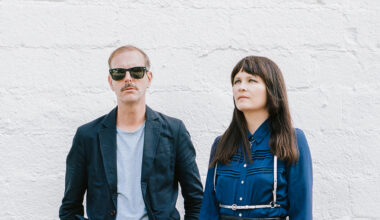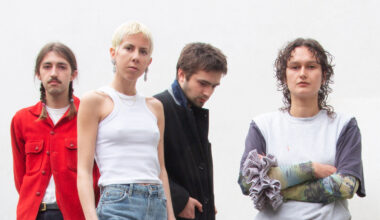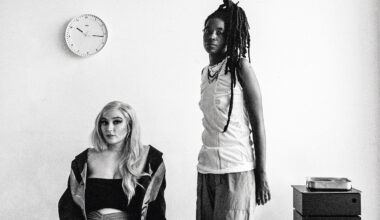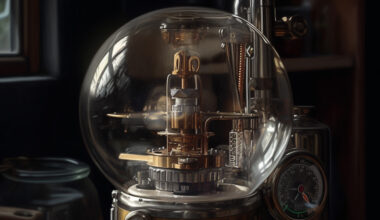Based in Manchester, sound artist Vicky Clarke explores DIY electronics, digital art and what she calls “techno-emotional states”, resulting in scintillating recorded work and live AV performances
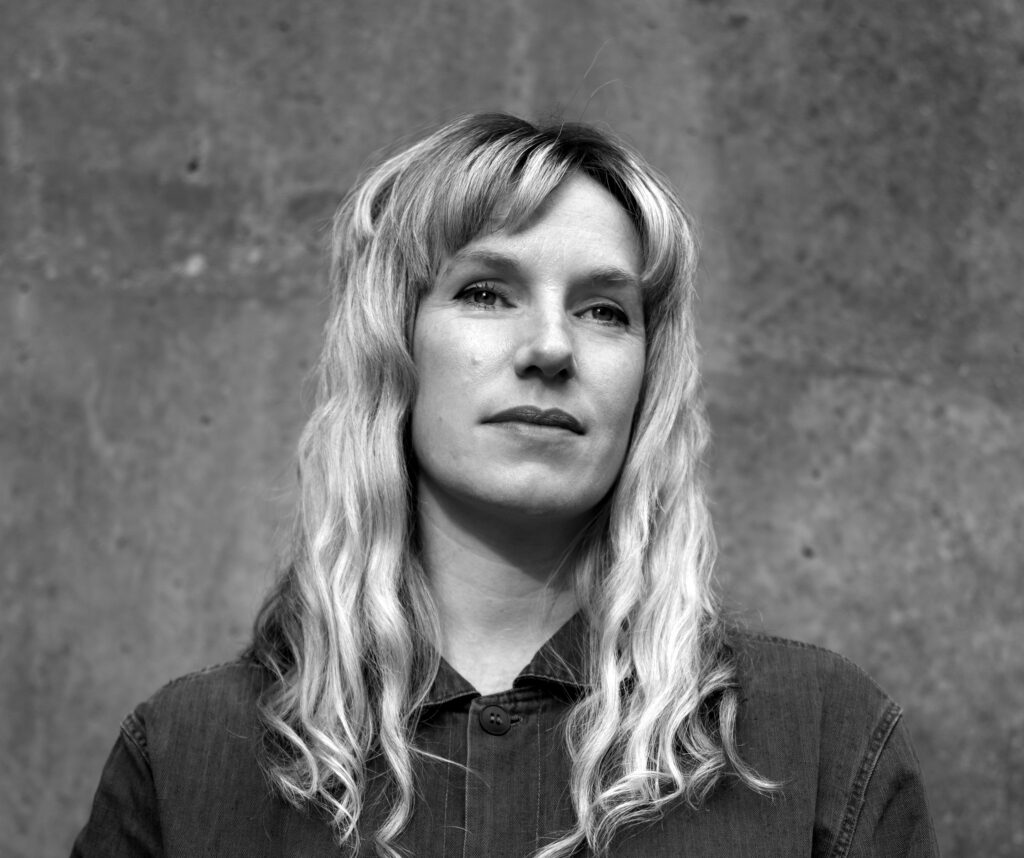
There’s a common misconception that using modular synthesisers is somehow a retro activity, like making sourdough, wearing thick ‘Starsky & Hutch’-style cardigans or doing a Rubik’s Cube while watching episodes of Tom Baker-era ‘Doctor Who’. It’s a fallacy that Vicky Clarke is here to dispel once and for all – although that’s not the motivation behind her bold, innovative new project, ‘Neural Materials’.
“I’m still quite a newbie to modular synthesis,” admits the 2020 Oram Award winner, sitting in her nicely stacked home studio in Manchester. “I got into it because I was doing a residency at the University of Manchester, researching machine learning and musique concrète. I work a lot with DIY electronics and field recordings and I was interested in using neural synthesis.”
For the uninitiated, the term “neural synthesis” is largely used interchangeably with machine learning or, more precisely, teaching machines to develop new avenues of human expression. Right now, Clarke is working towards dovetailing AI and the found sounds she’s accumulated from her travels around Manchester with modular synthesis, by way of an ingenious self-built dataset. Specifically, she has been using the Morphagene music synthesiser module for this experiment. She shows me a black panel that controls “Reels, Splices and Genes”.
“This is the very first one I bought,” she says. “It basically manipulates samples in real time and takes micro abstract materials that you can reframe in a live setting.”
If it sounds complicated, that’s because it is. But Clarke essentially has the past and the future talking to each other – and even grappling with each other – in a groundbreaking sonic Frankenstein’s monster that’s still in progress. She demonstrates where she’s at with it, playing me a flurry of spinning machine samples in Ableton that are intriguingly starting to interact with the AI.
These studio experiments are part of a project commissioned by Cyborg Soloists, a UKRI-funded Future Leaders Fellowship attached to the Royal Holloway music department, University of London. They are conducted around rhythm, tone and gesture to build materials for performance. Clarke says there’s still plenty of work to be done, though, before she demonstrates what she’s achieved in a live setting in September for Test Card – a platform for audiovisual artists.
“I’ve been recording cotton, water and noise as the three materials I’m working with,” she explains. “The cotton sounds are represented by the machines of Quarry Bank Mill, which is one of the last surviving working mills where you can see these old textile industry machines working. I’ve made hydrophone recordings at different points on the Manchester canals, and then the noise comes from the city centre.
“The idea with this dataset was to take a journey from the edges of the city and the beginnings of the Industrial Revolution, and then to come through the canals and into the city centre, which represents the gentrification of the present. So the question is, what will the AI generate as future rhythmic material?”
Onstage, Clarke interacts with rune-like steel sculptures made by hand and fitted with special Bela Trill sensors, allowing for gestural control that works in a similar way to playing a theremin. For her last performance in 2022, an audiovisual piece titled ‘Aura Machine’, the sound sculptures embodied Clarke’s readings on alchemy and machine learning. At the time, she wrote that they transmute “from ancient and techno symbolism through neural-latent space into the physical realm”. She’s tight-lipped about what she’s building this time, though her regular AV collaborator Sean Clarke is involved once again.
While many musicians seem terrified of AI, Clarke is interrogating new and ambitious ways to make music at the very vanguard of a powerful and unpredictable new technology, in tandem with a powerful and unpredictable old one. So “never work with AI and modular synthesis” could be the new “never work with animals and children”?
“I guess it’s about what you feel comfortable with,” she replies. “If everything’s decided already, then there’s no kind of jeopardy or fun for the performer.”
For more, see vickyclarke.org
